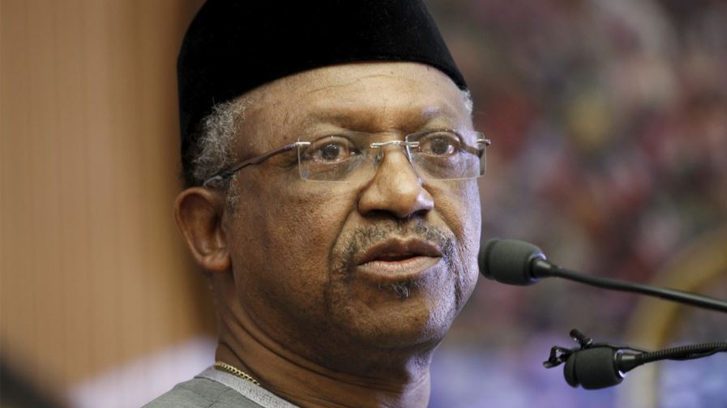How Nigeria recorded 50% increase in TB notification in 2021 — FG
Nigeria recorded a 50 per cent increase in annual tuberculosis case notification in 2021, with numbers increasing from 138,591 cases in 2020 to 207,785. The Minister of Health, Dr Osagie Ehanire, made the disclosure in Abuja while launching the compendium of best practices for tuberculosis control in Nigeria. It was organized by the National Tuberculosis […]

Minister of Health, Dr Osagie Ehanire.
Nigeria recorded a 50 per cent increase in annual tuberculosis case notification in 2021, with numbers increasing from 138,591 cases in 2020 to 207,785.
The Minister of Health, Dr Osagie Ehanire, made the disclosure in Abuja while launching the compendium of best practices for tuberculosis control in Nigeria.
It was organized by the National Tuberculosis and Leprosy Control Programme (NTBLCP) of the Federal Ministry of Health in collaboration with the Institute of Human Virology, Nigeria (IHVN) and other partners.
The minister said the implementation of innovative strategic interventions put in place by the TB programme managers, including the integration of TB control into COVID-19 response measures, eventually led to a 15 per cent increase in TB notification from 120,266 cases in 2019 to 138,591 in 2020.
“This made Nigeria one of the few countries in the world to record an increase in TB case notification during the 2020 COVID-19 pandemic,” he said.
Dr Ehanire however added that despite significant progress in the past three years in the fight to end the TB epidemic in the country, there are still over 200,000 new TB infections occurring every year yet to be detected and enrolled in treatment.
The Programme manager, tuberculosis, of the IHVN, Dr Taofeekat Ali, said private sector engagement for TB control as spearheaded by IHVN, is one of the core best practices that have helped Nigeria in achieving an increase in case notification in the last three years.
She said in 2021, the private sector case notification for TB rose to over 58, 000 (29 per cent of the national TB case notification) compared to about 11, 000 which represented 13 per cent in 2018.
Dr. Ali said other best practices that led to increase in finding missing TB cases by IHVN are investment in use of modern and newer molecular diagnostic tools, use of stool samples for diagnosing TB in children, and expansion of electronic data management, among others.
Dr Olugbenga Daniel, IHVN Director Technical Programme USAID TB LON 3 Project said, the programme, which focused on finding missing TB cases in four South West states, achieved increased notification through facility-based intervention, by engaging screening officers to ensure that 100 per cent hospital attendees are screened.
The states are Lagos, Ogun, Osun and Oyo. He said others include community intervention, outreaches, contact tracing, TB diagnosis support, and laboratory support for optimal function.
